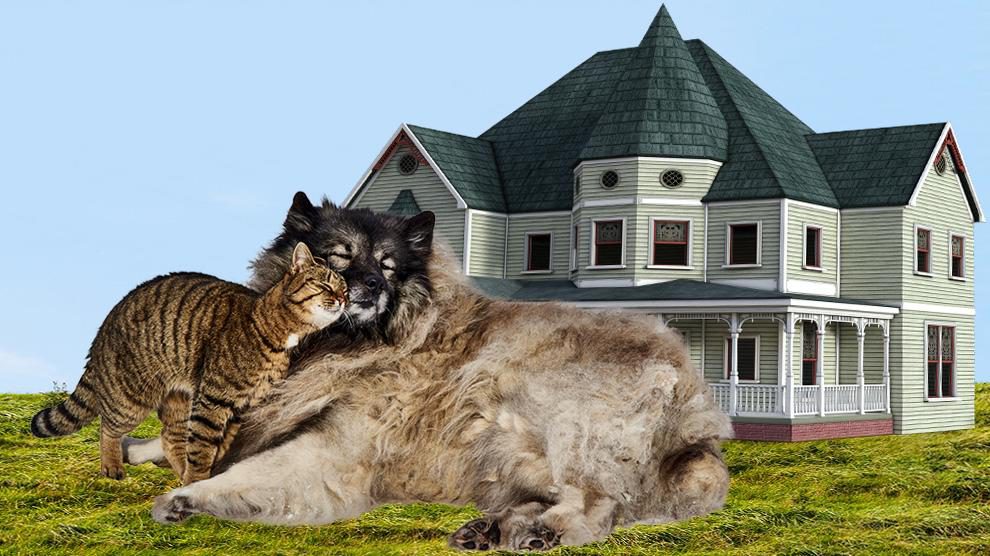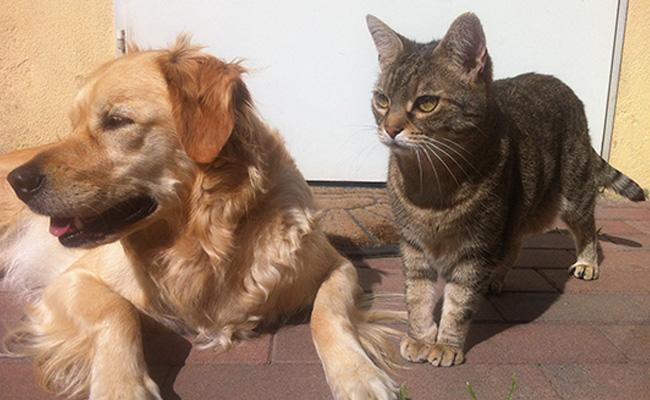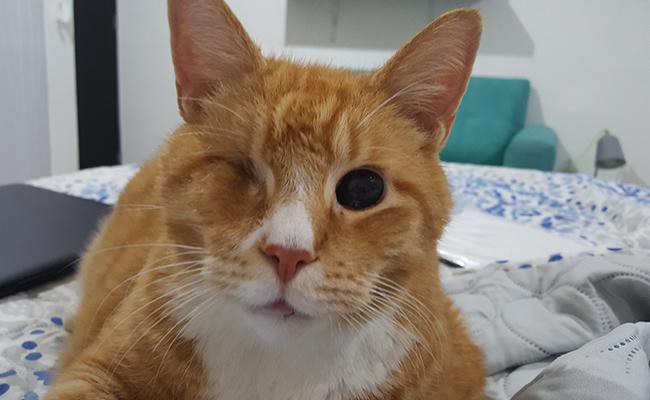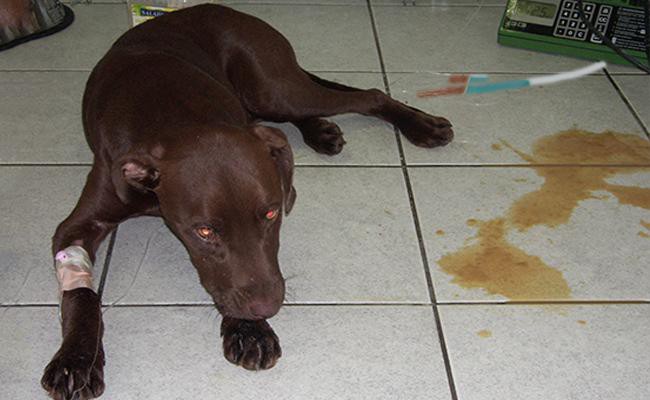- How To Determine Whether Your Pet Has Become “Old” Or Not?
- What Sort Of Health Issues Mostly Trouble Senior Pets?
- Caring For Senior Pets
- How To Understand My Senior Dog’s Behavioral Changes?
- Is My Dog Or Cat Losing Its Faculties?
- What Are The Well-Known Signs Of Disease In Senior Pets?
- Are All Senior Pets Susceptible To Cancer?
- Arthritis In Senior Pets
- When Is The Right Time To Euthanize Your Pet?
- Is It Advisable To Keep New Pets With Senior Pets?
Dog Pregnancy Calculator And Timeline
Due to sustained dietary habits and veterinary concerns, care for senior pets has become a hot topic. Both the pets and their owners are facing a series of age-related health challenges. Most of the shelters are also overpopulated with senior pets.
Experts have been advancing their research on how veterinarians and owners can easily manage the special demands of older pets.
Let’s know more about how and when dogs and cats grow to become seniors at different points in their lives.
How To Determine Whether Your Pet Has Become “Old” Or Not?
In particular, small dogs and cats are normally regarded as geriatric at the general age of seven. But, not to mention, larger breed dogs are most likely to have a shorter life expectancy and are labeled “senior” when they reach 6 years.
So, what is a dog’s or cat’s age in human years?
| Human Years | Cat Years |
|---|---|
| 98 | 20 years |
| 75 | 15 years |
| 58 | 10 years |
| 45 | 7 years |
| Human years | Dog Years |
|---|---|
| Large to V. Large - 50 to 56 Small to medium - 44 to 47 | 7 |
| Large to V.Large - 66 to 78 Small to medium - 56 to 60 | 10 |
| Large to V. Large - 93 to 115 Small to medium - 76 to 83 | 15 |
| Large - 120 Small to medium - 96 to 105 | 20 |
Note: Very large breeds > 90 lbs, Large > 51 to 90 lbs, Medium > 21 to 50 lbs, Small > 0 to 20 lbs
Special Mention
- Bluey, an Australian Dog, which lived in Victoria, survived till a ripe old age of 29 years.
- Crème Puff, a domestic cat that lived between 1967 to 2005, was the oldest cat according to the Guinness.
What Sort Of Health Issues Mostly Trouble Senior Pets?
Senior pets are known to suffer from some of the same health troubles witnessed in senior people and they include
- Weakness
- Infirmity
- Bone or joint disease
- Diabetes
- Liver disease
- Urinary tract disease or kidney
- Heart disease
- Cancer
Caring For Senior Pets
First and foremost, you should consult your vet and be ready to address the age-related concern. Do not forget senior pets need more care and affection, including more regular visits to the vet, alterations to their surroundings, and suitable diet plans.
Important Senior Pet Care Information
| Area Of Interest | Description |
|---|---|
| Reproductive disorders | In general, non-spayed or non-neutered senior pets are prone to higher risks of prostate, testicular, and mammary cancers |
| Environmental issues | As a matter of fact, senior pets may require suitable alterations in their lifestyle, In addition, disabled pets require proper care from your vet. |
| Mental wellness | When pets approach old age, they may show symptoms of infirmity. Keep them engaged physically and mentally. |
| Vaccination | Consult your vet and give them the right vaccination. |
| Managing senior pets | It’s essential to keep senior pets active by engaging them in daily activities |
| Parasite management | Younger pets have a much stronger immune system than older pets, so handle senior pets with care |
| Weight management | Weight loss or gain both indicate health issues in geriatric cats |
| Food | Senior pets require readily digestible foods that contain various anti-ageing nutrients |
| Increased vet consultation | Senior pets require half-yearly visits instead of yearly visits. The important areas of concern include physical signs, possible blood work, and dental care |
How To Understand My Senior Dog’s Behavioral Changes?
In short, behavioral changes provide vital clues associated with medical issues in senior pets. As a responsible pet lover, you play a vital role in identifying your pet’s routines and behavior.
Suppose, if you notice any critical change in your pet’s daily behavior, contact your vet for a consultation.
- Noticeable changes in senior pets
- Alteration in sleep cycles
- Increased activity
- Repetitive activity
- Decreased grooming
- House Soiling
- Increased anxiety
- Enhanced protective behavior
- Slow or no response to commands
- Increased irritability
- Reduced interaction with humans
- Disorientation
- Confusion
- Increased vocalization
- Overreaction to sounds or noises
Is My Dog Or Cat Losing Its Faculties?
Maybe yes. After a thorough examination, your vet will decide whether your dog is suffering from cognitive dysfunction or not. Interestingly, studies reveal that brain changes in dogs were similar to those in humans suffering from Alzheimer’s disease.
In particular, lab tests conducted in the nineties identified memory and learning deficits in senior dogs. Also, canine brain study is carried out in younger cats.
Moreover, researchers are still not in a position to identify the exact cause of the issue. But, there are specific drugs and diets that can control the cognitive decline in senior pets.
Overall, if you believe your pet is showing signs of cognitive decline, contact your vet as soon as possible.
What Are The Well-Known Signs Of Disease In Senior Pets?
The symptoms you might witness will change with the health problems affecting your pet.
Simple warning signs related to major health crises in senior pets are –
For Heart Disease
- Vomiting
- Decreased appetite
- Decreased tolerance of exercise
- Difficulty in breathing
- Coughing
For UTI ( Urinary tract disease)
- Weakness
- Presence of blood in the urine
- Straining to urinate
- Increased spotting
For Kidney disease
- Sore mouth
- Vomiting
- Hair loss
- Urination problem
- Increased thirst
- Lack of appetite
Are All Senior Pets Susceptible To Cancer?
In particular, the risk of cancer actually increases with age. At present, more than half of dogs touching the age of 10 are prone to cancer. In addition, lymphoma cancer is found more prevalent in cats more than dogs.
In reality, a cancer diagnosis is based on several tests ranging from physical signs, the appearance of tumors, blood tests, and x-rays. However, cancers are only confirmed after conducting a biopsy.
Symptoms of cancer in dogs and cats
- Presence of a tumor
- Unexplained lameness, pain, or heat
- Sudden weight loss or gain
- Continuous vomiting or diarrhea
- Non-healing injuries
- Discolored skin, bumps, or lumps
- Difficulty eating
- Difficulty breathing
- Bleeding from nose, mouth
- Abdominal swelling
Arthritis In Senior Pets
You should consult your vet and have their opinion on your pet. In general, large dogs are susceptible to arthritis and this list shows some of the symptoms associated with arthritis.
Symptoms of Arthritis
- Being less alert
- Increased irritability
- Decreased activity
- Abnormal weight gain
- Hesitancy to climb, run, or jump stairs
- Can have sore joints
- Excessive sleep
- Difficulty standing or sitting
Arthritis treatment is similar to humans and they include
- Diets containing special supplements can reduce the discomfort
- Over-the-counter treatment and a vet prescribed NSAID decreases disease progression and pain
- Food consisting of chondroitin sulphate, glucosamine, or omega fatty foods can relieve the signs of arthritis.
- NSAIDS drugs are quite similar to aspirin, ibuprofen, and one should never give these drugs to a pet without getting proper vet advice.
- Let your vet choose the right drug that reduces the pain
- Healthy exercise and diet to manage proper weight
Can you give human pain medicine to a pet?
Never give human medications to your vet without your vet’s knowledge. Certain medications can cause serious harm to your pet. You can also use stair steps, raised feeding platforms, and orthopedic beds that can improve your pet’s life much better.
Overall, avoid feeding your pet with over-the-counter medicines and suitable changes at home may help improve your pet’s life.
When Is The Right Time To Euthanize Your Pet?
Yes, euthanizing a pet is one of the most difficult decision to make for both the vet and the owner. One simple technique is to adopt a “Quality of Life” test and check whether the pet’s basic needs are satisfied.
In this scale, each and every pet are ranked between 1 to 10, with 10 indicating the top score for good quality of life. Furthermore, the scoring achieved in this test is subjective and your decision should not be based only on this test report.
Quality of Life Test Scale
| Criteria | Score (0 to 10) |
|---|---|
| Enough pain control HURT | 0 to 10 |
| What kind of feeding mechanism does the pet require? Is it really satisfied? HUNGER | 0 to 10 |
| Does your pet require subcutaneous fluid? HYDRATION | 0 to 10 |
| Check the cleanliness of pets HYGIENE | 0 to 10 |
| Does the pet show any signs of fear/anxiety/loneliness? HAPPINESS | 0 to 10 |
| Does your pet experience stumbling or seizures? Mobility | 0 to 10 |
| When bad days overtake good days - More Good than Bad | 0 to 10 |
| Total score of 35 or more decides in favour of your pet | Final score |
Is It Advisable To Keep New Pets With Senior Pets?
It may look irresistible to introduce a young pet as your present pet grows older, however, first, you should contact your vet. Especially, a vet will advise introducing new pets when your senior pet is moving around.
Finally, senior pets should have a secure, quiet place where they can take rest, undisturbed, in peace.






















